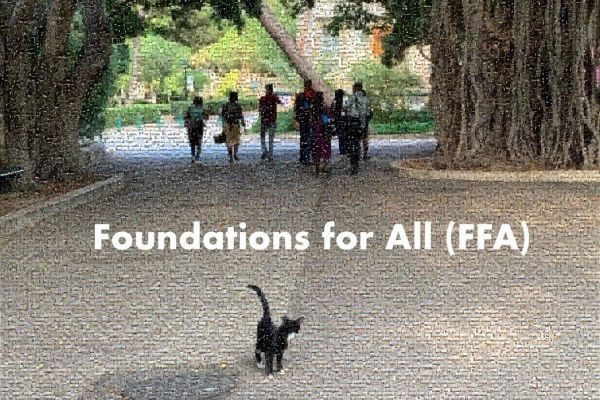
Supporting success in higher education for displaced and refugee young people through online distance learning
Foundations for All provides insights on how to effectively facilitate access to and future success in higher education for displaced and refugee young people in resource-poor environments through contextualised blended bridging programs.
This action-based project will research and evaluate the implementation of a blended-learning ‘Foundations for all’ degree for refugee scholars. The 30+ week programme will be offered in a blended format, equipping refugee scholars who have had their education disrupted or are unable to provide documentation of their academic record, with skills and a qualification that will allow them to begin an undergraduate degree.
Who are you working with?
The project has been funded by the Mastercard Foundation and is working with the Refugee Law Project, Makerere University, and American University of Beirut. The academic team at the University of Edinburgh brings together researchers based in Moray House School of Education and Sport, the School of Social and Political Science, Durham University and the Open University.
Impact so far?
A pilot curriculum developed out of two years of research and design is currently running in Kampala, the capital of Ugandan, as well as the Kiryandongo Refugee Settlement. Each location is staffed by a team of tutors from the Refugee Law Project and each site has 20 students (so a total of 40 refugee students from South Sudan, Somalia, and Democratic Republic of Congo primarily).
The pilot is designed to be run again to more refugees and internally displaced persons as needed. Refugee Law Project do a great deal of activism for refugees in terms of policy and this project is intended to make this advocacy more impactful.
Why is it important?
Worldwide, there are over 70 million refugees and forcibly displaced people. The refugee population in Uganda at ~1.46 million makes up 3.6 % of the country's total population of 39 million. Most refugees are from South Sudan (74 %), 19 % are from the DRC, and 3% are from Burundi*. Less than 3% of refugees worldwide enter higher education, a statistic that this project attempts to begin to address.
